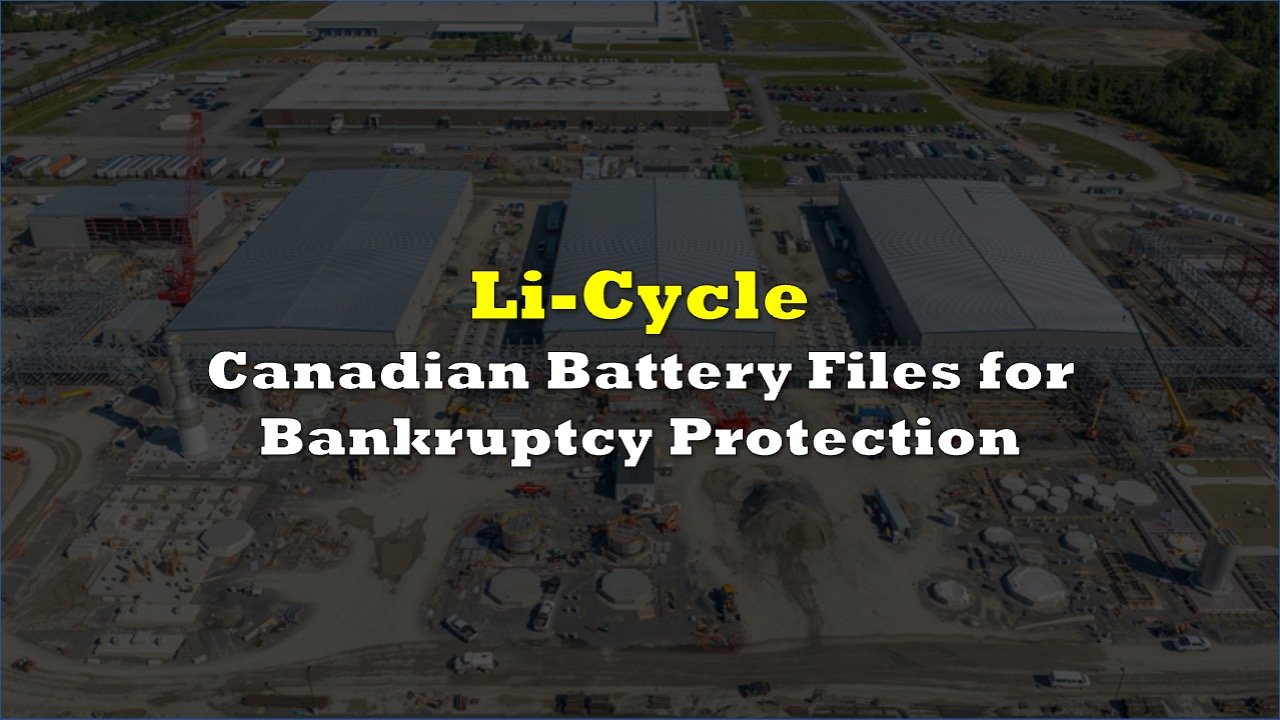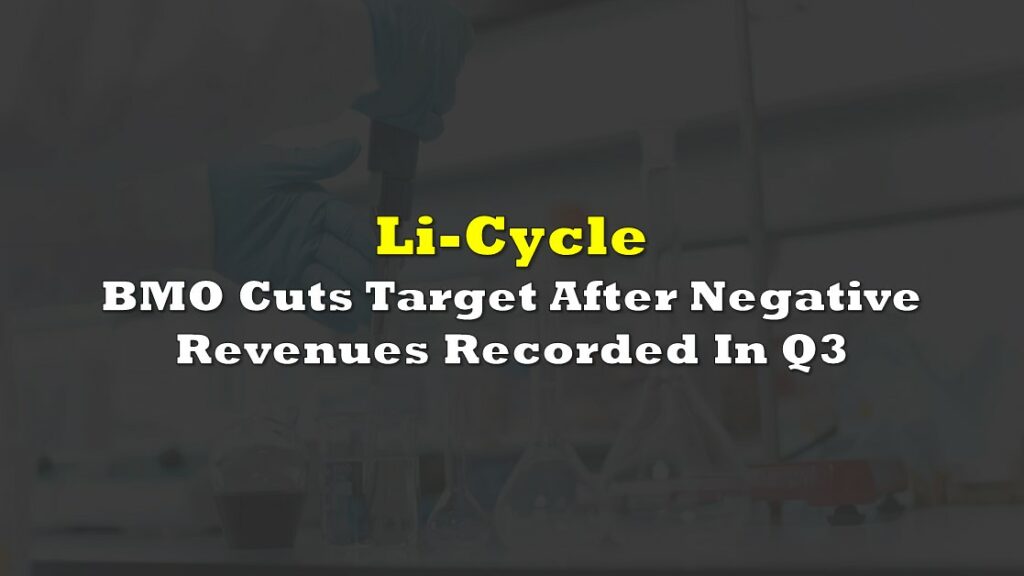Li-Cycle Holdings Corp., a Toronto-based lithium-ion battery recycler once valued at over $2 billion, filed for bankruptcy protection last week after months of mounting financial difficulties.
The company sought protection under Canada’s Companies’ Creditors Arrangement Act on May 14 and simultaneously filed for Chapter 15 bankruptcy in US court, according to documents from the Ontario Superior Court of Justice.
Alvarez & Marsal Canada Inc. will monitor Li-Cycle during the proceedings, with the court granting a stay of proceedings until May 22.
Glencore, the Swiss mining giant and Li-Cycle’s largest secured creditor, provided $10.5 million in emergency financing and made a $40 million stalking horse credit bid for key company assets, including facilities in Arizona, Alabama, New York, and Germany.
The bankruptcy caps a stunning decline for a company that went public in 2021 through a special purpose acquisition company merger. Li-Cycle’s share price has fallen more than 99% from its peak, with shares moving to the OTC Pink Market following the bankruptcy filing.
“Considering the company’s current circumstances, Li-Cycle will need to significantly modify or terminate its operations,” the company said in a May 1 statement warning of possible bankruptcy.
Former CEO Ajay Kochhar, who co-founded the company in 2016, announced on May 1 that he would step down effective May 15. William Aziz was appointed chief restructuring officer.
Li-Cycle pioneered a “Spoke & Hub” recycling model, processing used batteries and manufacturing scrap at “Spoke” facilities into a powder called “black mass” containing valuable metals. Its partially built Rochester Hub facility was intended to extract battery-grade materials from this mixture.
Construction at the Rochester Hub paused in October 2023 as costs spiraled, despite Li-Cycle securing conditional approval for a $475 million US Department of Energy loan that it ultimately couldn’t access.
Li-Cycle’s bankruptcy follows recent financial difficulties at other Canadian clean technology companies, including Quebec-based EV bus maker Lion Electric and battery manufacturer Northvolt, both of which have also sought creditor protection.
Related: Lion Electric Assets Salvaged By Group Of Quebec-Based Investors
Most of Li-Cycle’s European operations (except in Germany and Switzerland) and all Asian facilities will likely close as the court-supervised sale proceeds. The company’s next court appearance on May 22 will determine whether Glencore’s bid is approved and outline the formal sale process for remaining assets.
Information for this story was found via the sources and companies mentioned. The author has no securities or affiliations related to the organizations discussed. Not a recommendation to buy or sell. Always do additional research and consult a professional before purchasing a security. The author holds no licenses.









